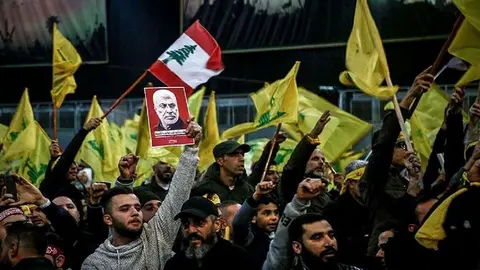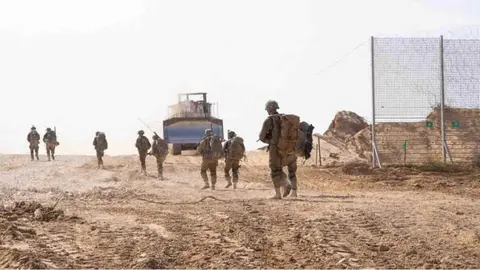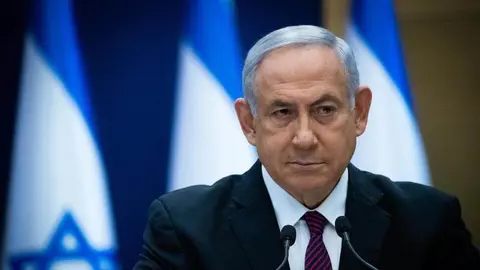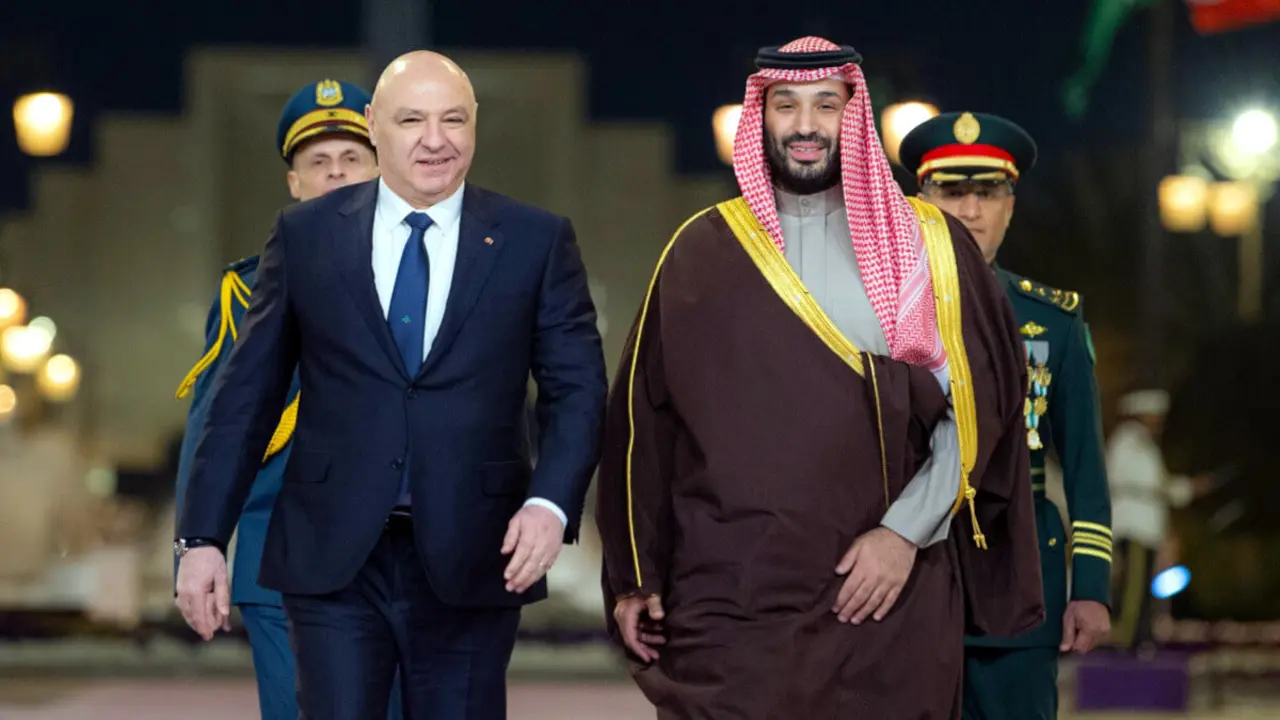Clashes between Israel and Hezbollah threaten to escalate into a full-scale war
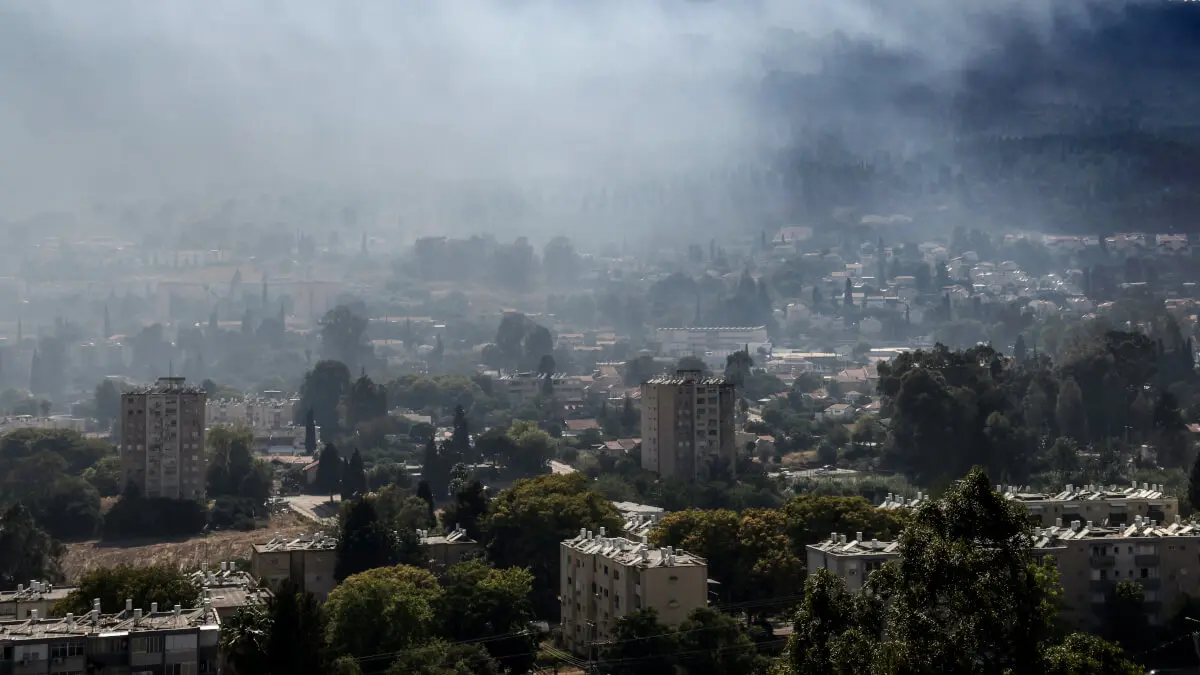
- Israel mobilises 50,000 more reservists in north
- Hezbollah pushes all of Lebanon to war
- Hamas rejects Israeli ceasefire plan
Clashes between Israel and the Iranian-backed Lebanese Shiite militia Hezbollah have been escalating since violence erupted along the common border following Hamas's attack on 7 October, which also sparked the ongoing war in the Gaza Strip.
In the absence of diplomatic breakthroughs, the low-intensity conflict has intensified in recent weeks, raising fears of an imminent full-scale war. Cross-border fighting has so far left at least 455 people dead in Lebanon - mostly Hezbollah fighters - including 88 civilians, according to AFP. On the Israeli side, at least 14 soldiers and 11 civilians were killed, according to the Israel Defense Forces.
On both sides of the border, the fighting has also led to the mass displacement of thousands of people. According to figures from the UN migration agency, IOM, 90,000 Lebanese have been forced to flee their homes, while in northern Israel recurrent attacks by Hezbollah have driven 80,000 citizens to evacuate.
In addition, thousands of Israelis have been forced to leave their homes in the south following Hamas attacks, exacerbating the country's IDP crisis.
🚨 Operational Update from the Northern Front:
— Israel Defense Forces (@IDF) June 3, 2024
• Approx. 30 projectiles crossed from Lebanon into Israel.
• The IDF intercepted an explosive UAV in northern Israel and another explosive UAV from Lebanon hit Israeli territory. No injuries were reported.
• IAF…
In the midst of this situation and in order to restore security in the north, several senior Israeli officials have recently called on the government to plan a new military operation to drive Hezbollah away from Israel's northern border.
In this regard, IDF Chief of Staff Lieutenant General Herzi Halevi said earlier this week at a military base in Kiryat Shmona, near the Lebanese border, that Israel is close to making a decision on daily Hezbollah attacks, saying the army is ‘ready’.
It appears Hezbollah did hit the Iron Dome launcher with a guided missile. This is the first time I've observed an Iron Dome launcher being hit. Separately, Palestinian terrorist groups have been trying to do this for years, but I've never seen evidence they were successful. https://t.co/6KB518OqJ4 pic.twitter.com/j6LZdJXK4W
— Joe Truzman (@JoeTruzman) June 5, 2024
Israel mobilises 50,000 more reservists in north
Meanwhile, in the last few hours, Prime Minister Benjamin Netanyahu also said from this border town - one of the most affected and practically uninhabited - that the country is ‘prepared for very intense action in the north’.
Netanyahu's remarks were followed by the government's order to mobilise a further 50,000 reservists in northern Israel, where some 300,000 have been deployed since October.
Prime Minister Benjamin Netanyahu visited the IDF "Gibor" base in Kiryat Shmona:
— Prime Minister of Israel (@IsraeliPM) June 5, 2024
"Yesterday the ground burned here and I am pleased that you have extinguished it, but ground also burned in Lebanon. We are prepared for very intense action in the north."https://t.co/yvhOG9reIC pic.twitter.com/JQOzhUyllH
This follows massive fires sparked by Hezbollah attacks on Israeli territory that have pushed the few remaining civilians in the area to evacuate. The blazes burned more than 1,000 hectares in the north of the nation, according to Israeli authorities, who also warned that the land could take years to recover.
Major fire near Katzrin in the Golan Heights following a rocket barrage fired from Lebanon. https://t.co/OdXwpeEbcW pic.twitter.com/nNkRNXSwiK
— Emanuel (Mannie) Fabian (@manniefabian) June 2, 2024
Local authorities and residents of the area demanded that the government take measures to establish security in the area after nearly eight months of daily attacks. Former Israeli Prime Minister Naftali Bennett also called for ‘saving the north’, accusing the government of abandoning it.
"Beautiful and flourishing places have been turned into rubble. Some evacuated residents are already planning their lives elsewhere," said Bennett, who described the situation as “a serious event that can in no way be normalised”.
Fires are burning ACROSS NORTHERN ISRAEL.
— Hen Mazzig (@HenMazzig) June 3, 2024
In Israel's northernmost city of Kiryat Shmona, ten firefighting teams are working to contain the blaze, caused by rockets from Hezbollah.
Fires are also burning in Keren Naftali, Amiad, and Tel Saki. pic.twitter.com/eSfet2Jd6P
Despite Israel's warnings, Hezbollah has maintained its offensive. In recent hours, the Lebanese militia launched several drones at the Druze town of Hurfeish in northern Israel, killing at least one person and injuring several others.
According to initial military assessments, the two drones struck within minutes of each other. The second was apparently aimed at rescue teams arriving to treat those wounded by the first attack, a tactic Hezbollah has employed several times during the war.
There's increasing chatter of a war in the north between Israel and Hezbollah. Hezbollah seems to be trying its hardest to instigate such a war, which would be disastrous for both sides.
— Alex גדעון בן װעלװל (@JewishWonk) June 5, 2024
A reminder: Lebanon and Israel have no reason to wage war. Iran and Hezbollah do. https://t.co/myXRK98Cu1
Recent warnings from senior Israeli officials appear not to have cowed Hezbollah, which plans to continue its offensive for the duration of the war in Gaza.
The armed group's leader, Hassan Nasrallah, has stressed that the attacks are ‘putting pressure on Israel’ over Palestine, but are also related to the ‘future of Lebanon and its water and oil resources’.
In the event of a full-scale war, Nasrallah warned that Hizbollah has ‘surprises’ in store for Israel, while Yaov Gallant, the Israeli defence minister, stressed that Lebanon would ‘pay the price’ for Hizbollah's actions.
Hezbollah pushes all of Lebanon to war
Analysts have pointed out that any full-scale conflict between Israel and Hizbollah will be far more devastating for both sides than the current war in Gaza.
This would mean a new open front for Israel, with the threat of Hezbollah's missiles, more effective than Hamas's and capable of reaching several areas of the country, including the centre. The economy and the displacement crisis would also worsen in the event of an open war with Hizbollah.
Wieder ein schwieriger Tag in Kiryat Shmona im Norden von #Israel. Massive Zerstörungen und wieder Brände, die ausgebrochen sind. Alle verbliebenen Bewohner wurden angewiesen, sich in der Nähe von Schutzräumen aufzuhalten. https://t.co/B56DXtMTS0 pic.twitter.com/mT54G5NZVr
— Fabian פביאן 🎗️ (@Fabi_el__) June 1, 2024
On the other hand, despite its ongoing provocations, Hizbollah does not seek a full-scale conflict with Israel, something that several analysts believe it is avoiding due to the internal consequences in the country.
Most Lebanese society does not want an escalation between Hizbollah and Israel, as such a war would end up affecting the civilian population in several parts of the country in the midst of a deep economic, social and political crisis.
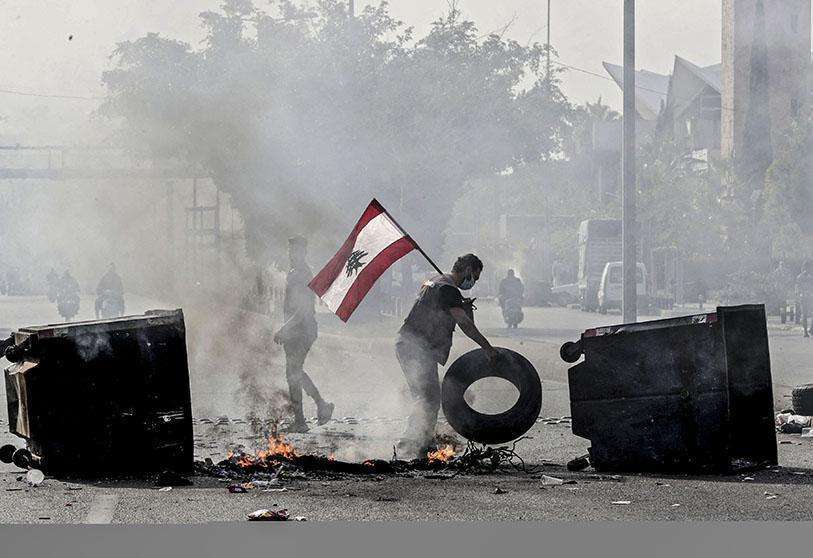
For the past eight months, Lebanese citizens have been watching the devastating images coming out of the Gaza Strip and how Hamas uses the Gazan population as human shields, as well as public infrastructure such as schools and hospitals, a strategy also followed by Hezbollah.
‘These organisations use the civilian spaces of the population they claim to represent for their armed purposes, which makes it impossible for those who are not formally terrorists to die when fighting them’, explains the Uruguayan-Israeli journalist Jana Beris on her social networks.
Una conclusiones duras al analizar la encrucijada en la que se encuentra Israel respecto a Hezbolá que ataca sin cesar y a Hamas que no libera a los secuestrados.
— Jana Beris (@JanaBeris1) June 5, 2024
El problema central tanto en el caso de Hamas como el de Hezbolá , aunque especialmente en este último, por su…
'I can clearly imagine what will happen when Israel finally decides to launch the war against Hezbollah that it deserves. It will be impossible to distinguish between Hezbollah and the Lebanese population in which it is embedded, just as Hamas did in Gaza,’ adds Beris.
Since the financial crisis of 2019, the country of the cedars has been plunged into instability. The poor economic situation is compounded by the continuing impossibility of establishing a new government, high poverty rates and the risk of reviving old sectarian conflicts.
Thus, even if Hizbollah has the means to cause significant damage to Israeli cities with its arsenal of Iranian-supplied weapons, it is Lebanon that has the most to lose in the event of a full-scale war, a scenario that will remain a possibility as long as the war in Gaza continues and Hizbollah continues to pose a threat to northern Israel.
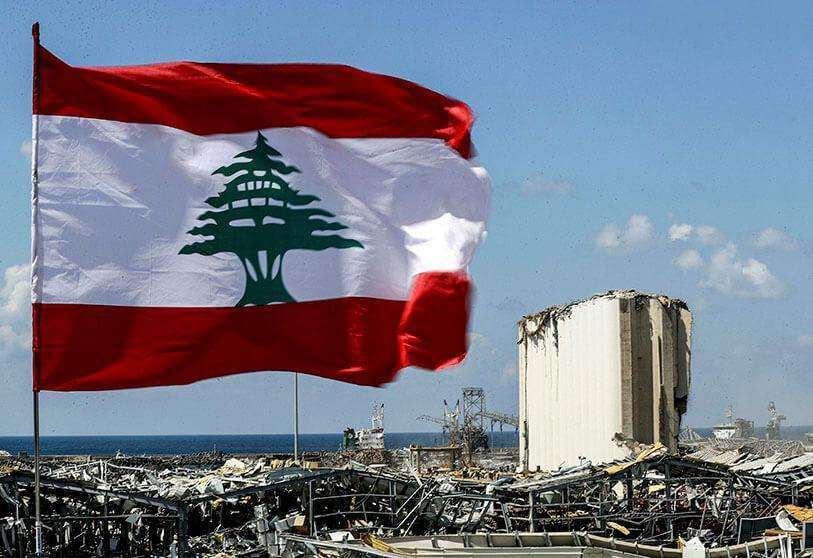
Hamas rejects Israeli ceasefire plan
One thing that could prevent a war between Israel and Hizbollah would be a ceasefire in Gaza, a scenario that seems increasingly remote after Hamas rejected Israel's new proposal.
According to the terrorist group, the document ‘does not provide the right basis for the required agreement’, reports the Saudi media outlet Al-Sharq. Hamas criticises the Israeli plan as ‘not including a permanent ceasefire but a temporary one’.
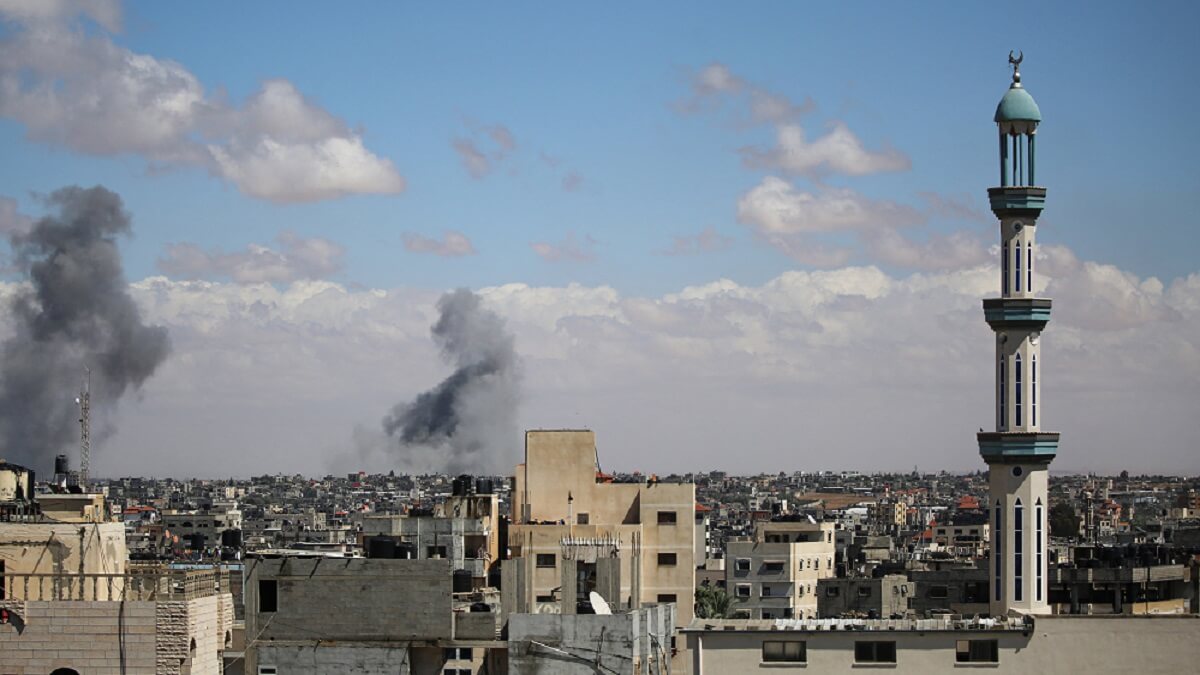
Since the start of the military offensive in Gaza and subsequent truce negotiations, Jerusalem has stressed that Israeli troops will not withdraw from the Palestinian enclave permanently until the two goals of the operation are achieved: taking back the more than 100 hostages - many of them dead - and ending Hamas.
Hamas's rejection of a truce comes amid an Israeli attack on a school run by the UN agency UNRWA, where the IDF claims 20 to 30 Hamas and Islamic Jihad terrorists were hiding.
🔴Eliminated: several Hamas and Islamic Jihad terrorists who embedded themselves inside of an @UNRWA school.
— Israel Defense Forces (@IDF) June 6, 2024
IAF fighter jets conducted a precise strike on a Hamas compound embedded inside the school in the area of Nuseirat. These terrorists belonged to the Nukhba Forces and… pic.twitter.com/2AX28twfVs
Israel has repeatedly accused Hamas of using schools and other civilian infrastructure in Gaza, including places where civilians shelter, for terrorist activities. Similarly, Jerusalem has accused UNRWA of links to terrorism after several of its members participated in the 7 October massacres.

